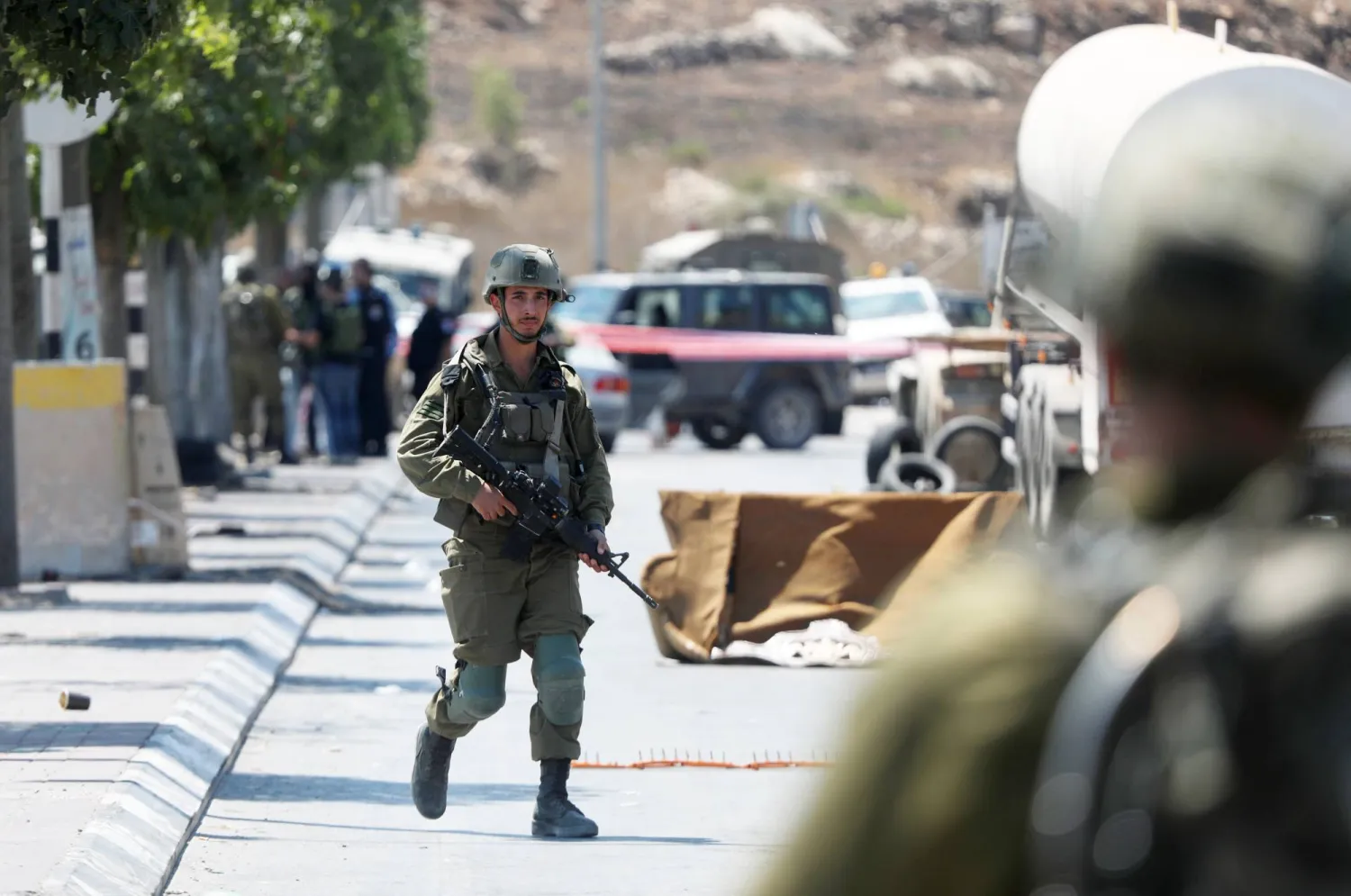Israeli troops killed a Palestinian militant during an army raid in the West Bank on Tuesday, Palestinian health officials said, while elsewhere in the occupied territory an alleged Palestinian assailant wounded an Israeli soldier in a shooting attack.
The events marked the latest violence to roil the territory during one of the most violent stretches of the Israeli-Palestinian conflict in nearly two decades. Israel has pressed on with near-nightly raids in the West Bank while Palestinian militants have ramped up shooting attacks against Israelis.
The early morning military raid into the Nur Shams refugee camp near the northern West Bank city of Tulkarem on Tuesday prompted a firefight between Israeli troops and Palestinian gunmen.
The army said troops found and demolished an explosives stockpile. Residents shared videos of bulldozers ripping off all the asphalt on the camp's main road.
The army also said that soldiers came under attack from armed gunmen and shot back at Palestinians who were also burning tires and hurling explosives.
The Palestinian health ministry identified the man killed as 21-year-old Ayed Abu Harb and said he died from a bullet wound to the head. The Palestinian “Islamic Jihad” armed group later claimed Abu Harb as its member.
Footage from the raid released by the Israeli military appears to show a massive fireball engulfing a building. Another video appears to show an explosive detonating beneath an Israeli military bulldozer.
Shortly after an attack on a building where Jewish settlers were reportedly meeting, Israeli security forces dispatched to the area near Route 90, the main highway through the Jordan Valley, spotted a Palestinian gunman who they said opened fire at them and wounded a soldier who was evacuated for medical treatment.
The Israeli military said troops shot at the alleged Palestinian attacker. The Palestinian's condition was not immediately clear.
Palestinian attacks against Israelis have spiked as the Israeli military intensifies its arrest raids in the West Bank. More than 30 people have been killed in Palestinian attacks against Israelis since the start of 2023.
More than 180 Palestinians have been killed in the violence, with nearly half of them affiliated with militant groups, according to a tally by The Associated Press. Israel says most of those killed were gunmen, but stone-throwing youths protesting the incursions as well as people not involved in the confrontations have also died.
Israel says the raids are meant to dismantle militant networks and thwart future attacks. Palestinians say the raids undermine their security forces, inspire more militancy and entrench Israeli control over lands they seek for a hoped-for future state.
Israel captured the West Bank in the 1967 Mideast war, along with east Jerusalem and the Gaza Strip.









